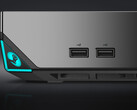Valve’s upcoming standalone VR headset, codenamed Deckard, is shaping up to be a big evolution from the Valve Index, with new leaks (courtesy of @gabefollower on X/Twitter) hinting at a $1200 price tag and new details surfacing about its controllers and tracking tech. Previous data mining efforts had uncovered references to Deckard’s controllers, codenamed "Roy," in SteamVR’s code.
Past leaks indicate that these controllers will incorporate major changes, dropping motion-tracking rings in favor of a more compact and ergonomic design. This move also aligns with recent industry trends, such as Meta’s shift to ringless tracking with the Quest 3S (curr. $299.99 on Amazon). Images of early prototypes show that Deckard’s controllers include a large D-pad, ABXY buttons, oversized triggers, and side-mounted triggers. The design also points towards a more traditional gamepad-like functionality, which raises the possibility of Steam Controller 2 integration.
Performance concerns are still a major question for Deckard, as running games at 120Hz and 1440p across two screens could push the limits of a standalone device. Battery life will also be a key factor. The lack of finger tracking - a feature present in the Valve Index - will definitely raise some eyebrows, with some viewing it as a downgrade rather than an improvement.
Another key question is whether Deckard will launch alongside a new Half-Life game. Valve previously used Half-Life: Alyx to showcase the Index, and there's a chance that the company might develop another flagship VR title to drive sales for the new headset. However, if Deckard is Valve’s current priority, it may push back the release of HLX - another rumored project that has been quietly in development.
All this indicates that Valve is taking a deliberate approach, possibly to make sure that both the hardware and software ecosystem are ready at launch. While the company is still silent regarding official details, the increasing volume of leaks and code references is definitely a good sign. The question remains whether the hardware will justify its price and compete with other major players in the VR space.























